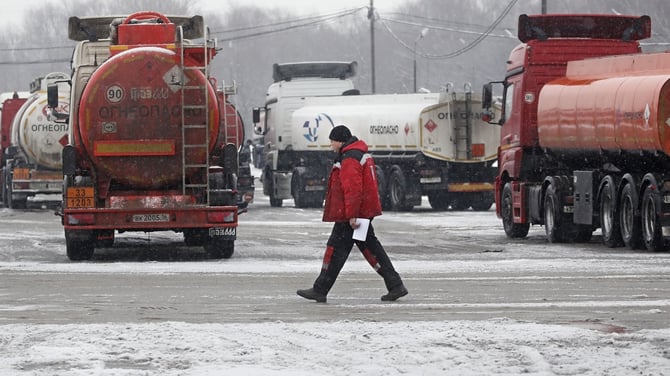Europe Bans Russian Diesel and Other Oil Products over Ukraine

The EU has slapped a ban on Russian diesel fuel and other refined oil products in a move designed to cut energy dependency on Moscow while also reducing the Kremlin’s fossil-fuel earnings.
The ban comes as punishment over Russia’s invasion of Ukraine and is in accord with the aims of a previous price cap approved by the Group of Seven (G7) allied countries.
European leaders expect that Russian diesel will continue flowing to countries like China and India, a situation that will at least avert a rapid diesel price rise that would impact consumers worldwide.
The effects of the diesel ban are not expected to hurt Russia immediately as the Kremlin has been preparing for this action for some time. However, Russia’s new problem will now be to find new global customers.
The latest sanctions are expected to create uncertainty about prices as EU member states source replacement supplies of diesel from the US, Middle East and India to substitute for Russian diesel, which accounts for as much as 10% of Europe’s diesel needs.
What does this mean for me?
The EU sanctions are initially unlikely to have any impact on global diesel-based activities because companies worldwide have been building up stocks of Russian oil products ahead of the well-advertised ban.
There is, however, the possibility that if demand growth is very strong in Asian economies, which are less intent on punishing Russia, demand-fueled price spikes could be felt around the world.
More News

Copper Prices Head Into Uncharted Territory
1 week ago

Silver’s Surge Shows Rate-Cut Bets and a New Layer of Trade Risk
2 weeks ago
.webp)
Gold’s Breakout Year Sets a High Bar for 2026
2 weeks ago
.webp)
Europe’s Gas Chill Turns Into a Price Rout
3 weeks ago

The Rare Earths Boom Driving a New Global Supercycle
1 month ago
.webp)
Brent Rises as Fresh U.S. Sanctions Choke Russian Oil Exports
2 months ago

Global Wind Market Set to Hit $304 Billion by 2029
2 months ago
.webp)
Gold Cools After Record Surge as Dollar Strengthens
2 months ago